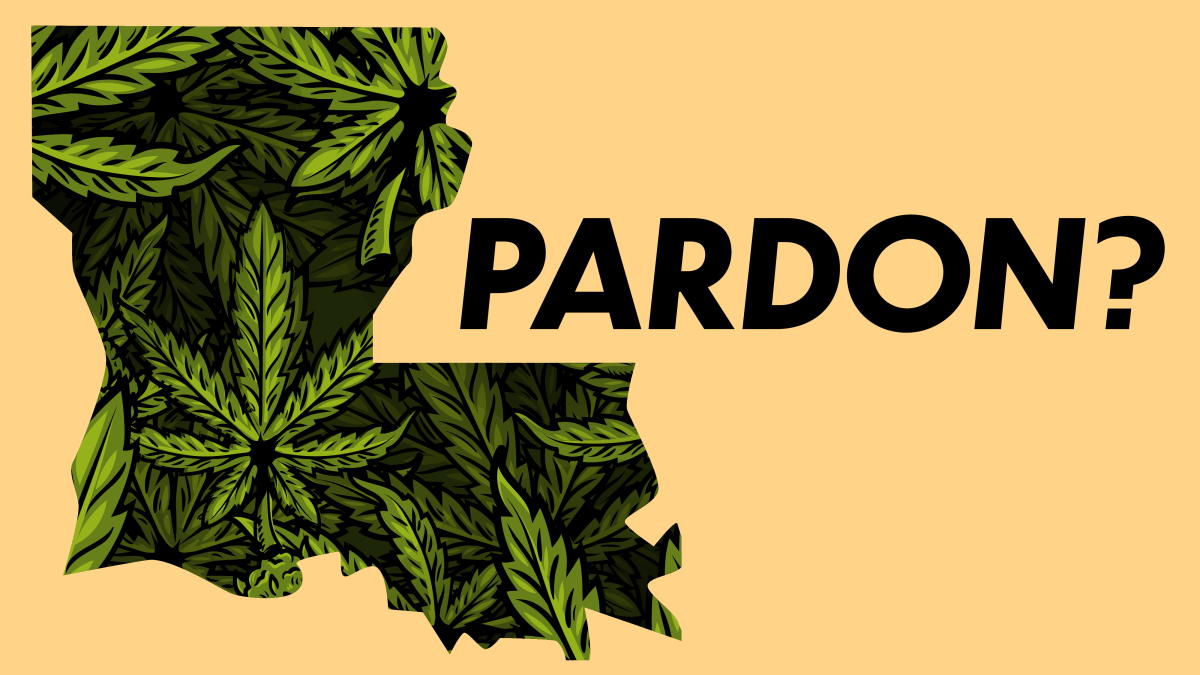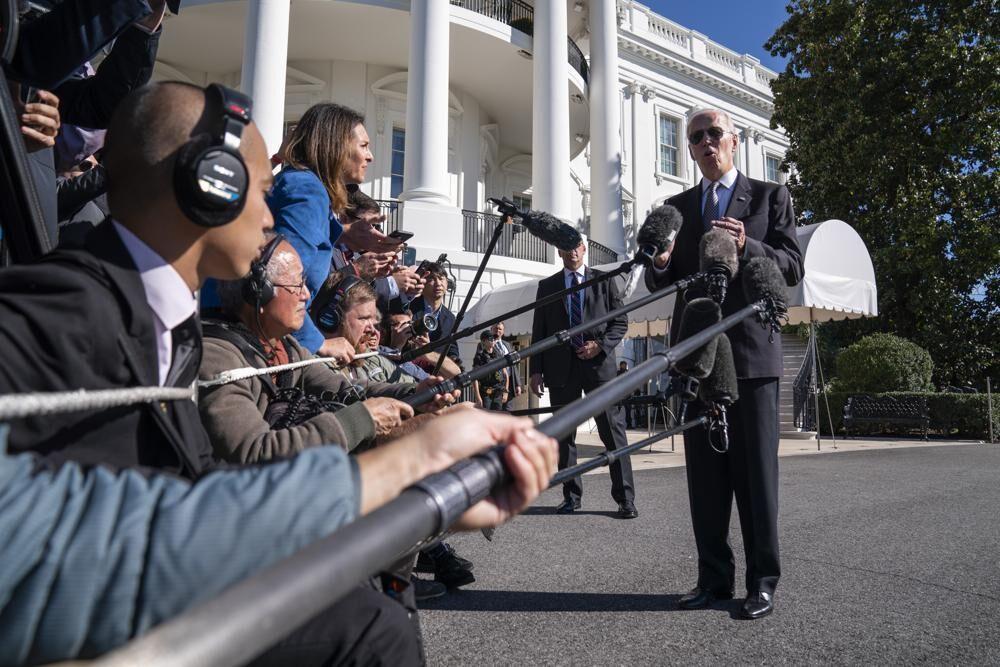In an Oct. 6 announcement, President Joe Biden fully pardoned US citizens and lawful permanent residents who committed simple possession of marijuana on a federal level.
Still, there are questions as to the extent of the pardons across the nation, specifically in Louisiana.
Biden’s actions only affect those convicted under federal law, estimated by the U.S. Sentencing Commission to affect about 6,600 citizens, so people arrested for simple marijuana possession under Louisiana state law, for example, will not be impacted.
Law professor Ken Levy believes the future of marijuana decriminalization depends on what happens in the upcoming Senate midterms. If Democrats keep the power in the Senate following midterms, they could decriminalize marijuana, Levy said.
He said he hopes that after the elections, Louisiana will legalize marijuana recreationally, with medical use being legal in one form or another since 2015.
“The trend is increasingly for legalization,” Levy said. “I think it’s inevitable. I think within five years every state will have legalized it, not just medical marijuana but marijuana generally, recreational use and the federal government. That’s my prediction.”
Third year law student Karl White is the president of the LSU Cannabis Law Society, an advocacy group that advocates for a legal cannabis market and reevaluation of drug policy. He believes there may still be a couple of states that will not legalize marijuana in the next five years.
“I think generally speaking, most states, maybe not within five years, but in the next 10 years, I think we’ll have some sort of legal cannabis market,” White said.
Louisiana passed several new laws on marijuana in August.
One law prohibited law enforcement from using marijuana odor as pretext for searching someone, with another not allowing discrimination of state workers based solely on a positive marijuana drug test if they’re state-registered as a medical marijuana patient.
In June 2021, the governor signed House Bill 652, which reduced the penalty for people possessing 14 grams of marijuana or under to be $100 in Louisiana.
“I absolutely think it’s ridiculous,” Levy said. “Pot should be treated like alcohol. For me the real hard question is: should we legalize the harder drugs?”
The United States Drug Enforcement Administration classifies drugs into five categories, a term known as drug schedules. Marijuana is ranked as a schedule one drug, which means it’s a drug “with no currently accepted medical use and a high potential for abuse,” according to the USDEA’s website.
Like Levy, White believes marijuana should not be classified the same as other schedule one drugs like heroin and LSD.
Biden’s statement pardoning federal drug charges was followed by his support of reassessing marijuana’s placement on the list of schedule one drugs.
White believes the over policing and criminalization of marijuana possession is targeted against minorities, especially Black communities.
“When you look at the history of the legislation a lot of it is designed specifically to target minority communities to basically use them as a source of cheap prison labor,” White said.
First year law student Julia Montgomery believes in addition to the use of criminalization of marijuana to target Black people, there is also a racial stigma against Black people who use marijuana, while society has glamorized the white stoner aesthetic, Montgomery said.
When she heard about Biden’s pardon, she was in support.
“I wasn’t super ecstatic or anything,” Montgomery said. “Obviously I’m really happy for these people but mostly I was just like, ‘It’s about time. Weed is no more dangerous than alcohol.’ So, there’s no reason to keep people locked up for something like possession.”
According to The Advocate, Governor John Bel Edwards supports Biden’s pardon, but has said that he doesn’t have the power to do the same on a state level. Montgomery believes Edwards took a “middle of the road” approach in response to Biden’s pardon and that he is likely trying to keep his position as governor instead of effectively helping people.
“But at least he is taking the step to say he agrees; that’s a step in the right direction, even if it’s not as big of a step as Louisiana needs,” she said.
Political science, psychology and sociology sophomore John Michael Sweat supports the complete decriminalization and legalization of marijuana.
When it comes to simple possession of harder drugs, he believes they should not be legalized but instead, decriminalized. Sweat used Portugal as an example, a country that did the same thing and saw positive results. A similar law was passed in Oregon in 2020, which decriminalized personal use of small amounts of all drugs.
Sweat said that it’s the sale of hard drugs that perpetuates a system of violence that kills people, not their use.
“[Selling hard drugs] is essentially like owning a casino,” Sweat said. “You’re sucking this person’s life away, and it’s criminal. You’re enabling them, but, at the same time, if you possess those things, you need help. You don’t need jail. You need counseling and support.”
Sweat is also hopeful that Louisiana will legalize marijuana in the next 10 years.
“There’s gonna be states like Alabama that I don’t think will, but Louisiana I actually do think has a chance of having that happen,” Sweat said. “It’s pretty prevalent already.”






